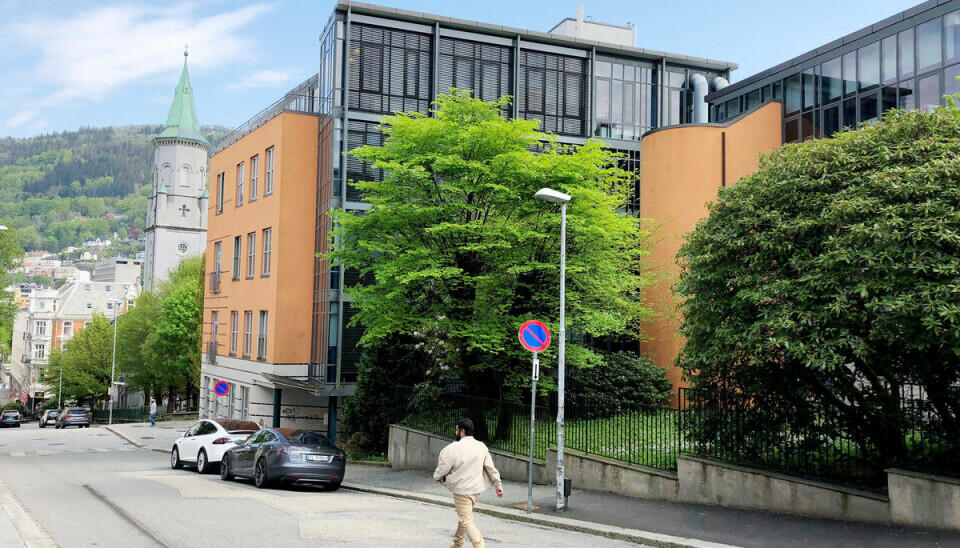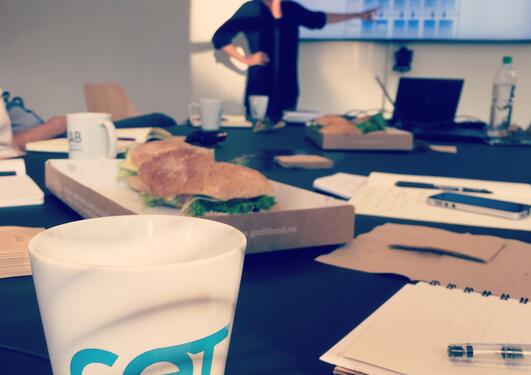CET Lunch: Pluralising place frames in urban transition management: net-zero transitions at precinct scale
Welcome to our hybrid CET Lunch seminar with Professor Rob Raven, Monash Sustainable Development Institute, Monash University.

Main content
Our speaker will attend in person. Participants can sign up and tune in via stream, or turn up at CET where lunch will be served on a first-come, first-served basis.
Decarbonising cities is critical in achieving international climate change goals. Following decarbonisation in sectors such as electricity generation, ‘net-zero’ has become a central concept in the discourse on decarbonising cities. However, this discourse embodies a risk of ‘carbon gazing’ and prioritising emission reduction above all other goals of what a sustainable city should look like, including whose interests are prioritised over others. As such, this talk is concerned with unpacking net-zero frames and identifying implications for urban transition management. The precinct (district) scale is highlighted as a meaningful scale for urban transition management. Using data from frontrunner interviews and secondary sources in a case study on the Monash Technology Precinct (Melbourne, Australia), the analysis points towards four frames of net-zero at precinct scale: ‘Electrify Everything’; ‘Place Matters’; ‘Going Green’; and ‘Innovation Hotspot’. This talk will then continue by showing how such frames are complicated and extended by mobilising design-anthropological methods and insights. Participants were invited to articulate future visions through crafting ‘Living Worlds’ from organic materials such as soil, plants and various objects collected from the precinct, brought together in terrarium tanks. Analysis of video, speech, and notes taken during the workshops, shows - compared to the original frames - a much stronger representation of nature, far-reaching ambitions on active transport, more attention for degrowth and sufficiency, a greater focus on circularity, less attention for energy infrastructure, and less attention for technology and innovation. We observe that these future visions also incorporate more personal attachment, aspirations, frustrations and feelings. The overall conclusion is that developing hybrid conceptualisations and methods across transition management and design anthropology holds potential for developing approaches that can align system-level thinking with the everyday experience of people in a way that connects people, politics and place in new ways.
About the speaker
Prof. Dr. Rob Raven is an interdisciplinary scholar, professor of sustainability transitions and deputy director (research) at Monash Sustainable Development Institute. He is also a visiting professor at the Copernicus Institute of Sustainable Development at Utrecht University. Originally trained as an electrical engineer, he has turned his gaze to the social, institutional, political, and spatial factors that influence successful innovation and transitions towards sustainable development. In 2012, Rob co-founded the global Sustainability Transitions Research Network and won the EASST Chris Freeman award. From 2019 onwards, he was selected into the Lifetime Achievement Leaderboard of The Australian – Australia’s top 40 researchers – and 1 of 5 top-performing Australian social scientists, and as a Field Leader in Business, Economics & Management. From 2022 onwards, Rob was included in Elsevier’s top 2% of the most influential researchers in the world in all scientific disciplines, with recognized impact in Energy, Business and Economics, and Enabling & Strategic Technologies. In 2023 he was elected into the Clarivate Highly Cited Researchers list. He has co-hosted the 13th International Sustainability Transitions conference, together with Stellenbosch University and Georgetown University. Rob holds several editorial positions, including as an associate editor at Environmental Innovation and Societal Transitions. His research has been funded by national research councils in Australia, the Netherlands, the UK and Denmark, by the European Union’s Horizon program, as well as by governments and industry for contract-based and applied research. His current research agenda is focused on the analysis of transformative change in urban contexts such as smart, sustainable, and net-zero cities and precincts. A key question is how actors, place-based experimentation, institutional change and incumbency in socio-technical regimes shape the governance of sustainable city futures in line with the Sustainable Development Goals and the climate urgency?
Please note that you will need a UiB access card to enter the building. Don't hesitate to contact Judith if you need access to the building.

